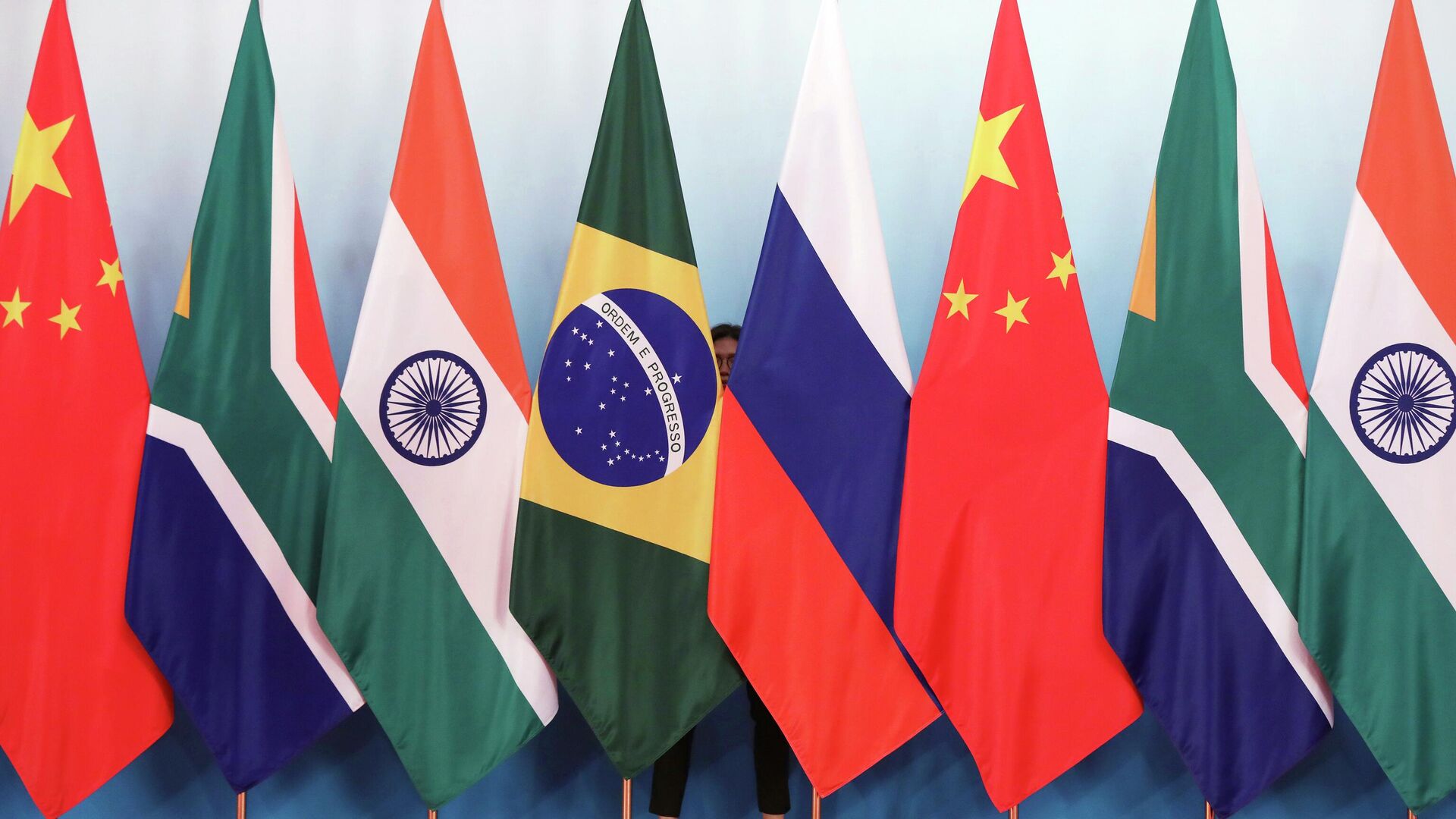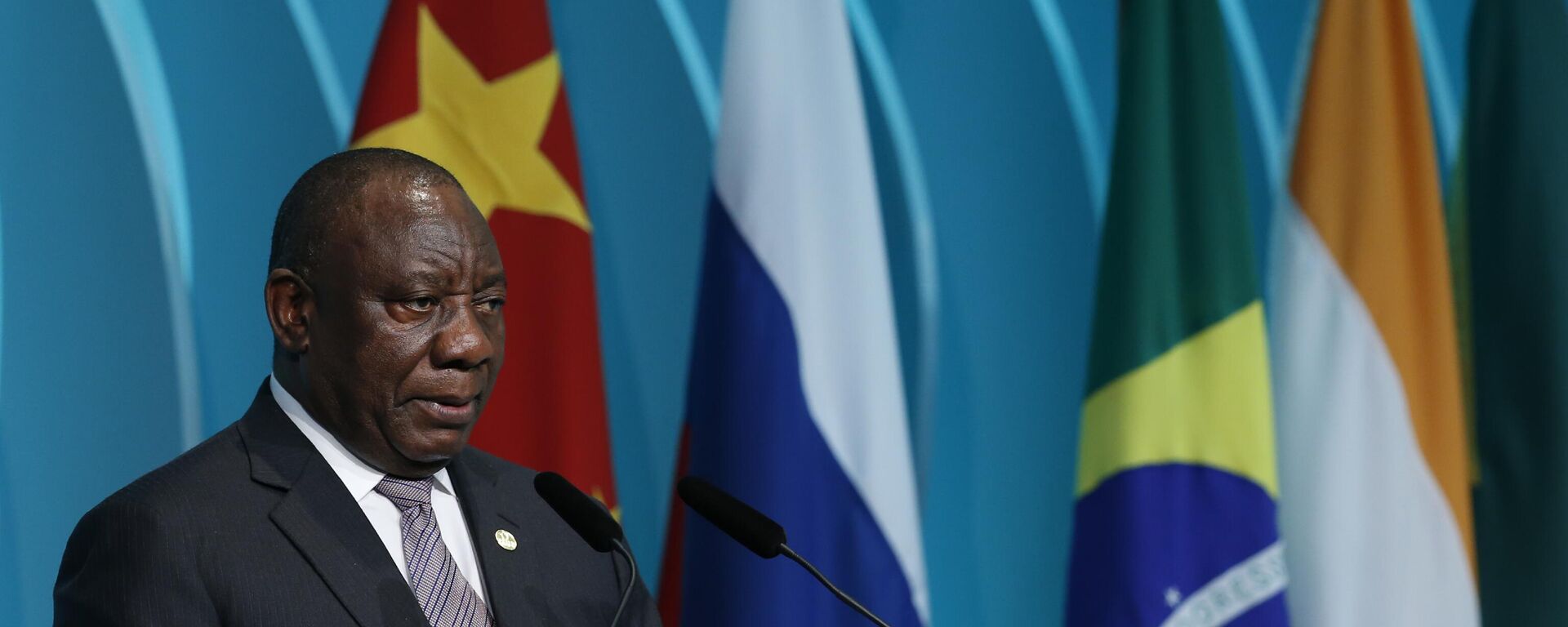South Africa Says BRICS Mulling New Payment System to Ditch Dollar Control

© Wu Hong
Subscribe
PRETORIA (Sputnik) - The BRICS club of emerging economies wants to find a way of bypassing the dollar to create a fairer payment system that would not be skewed toward wealthier countries, South African Foreign Minister Naledi Pandor told Sputnik.
"We have always been concerned by the fact that there is a dominance of the dollar and that we do need to look at alternative… The systems currently in place tend to privilege very wealthy countries and tend to be really a challenge for countries, such as ourselves, which have to make payments in dollars which costs much more in terms of our various currencies. So I do think a fairer system has to be developed and it's something we're discussing with the BRICS ministers in the economic sector discussions," she said.
Pandor said that one of the reasons why BRICS — Brazil, Russia, India, China, and South Africa — set up the jointly-run New Development Bank (NDB) in 2014 was to find an alternative to the dollar-based payments architecture.
"BRICS has a number of sectoral committees that look at issues of politics and security, the economy and people-to-people exchange, and within the economic context we are looking at how the NDB and other institutional formations may assist us to develop a fairer system of monetary exchange," she explained.
Countering Malign Russian Activities in Africa Act
Foreign Minister Naledi Pandor has also argued that South Africa warned the United States that the bill seeking to counter Russia's "malign activities" in Africa needs to be trashed because they violate international laws.
"I believe the bill should really be killed because I think it's totally unwarranted. I think it is an intrusion that goes against international law, and we have made this clear to our colleagues in the United States," the minister said in an interview.
The draft legislation was introduced in Congress in April by Rep. Gregory Meeks. It passed the House in May and is awaiting the Senate's vote. If enacted, the bill will direct the Secretary of State to come up with a strategy for countering Russian influence in Africa and holding African governments accountable for aiding Russia's "proxies" through sanctions and other restrictions.
"We even met with the drafter of the initial legislation and indicated the offense which we view this particular proposed piece of legislation. We will continue to advocate for that bill to be torn up and not to proceed to any formal stage," the minister highlighted.
Unilateral sanctions
On the issue of the US unilateral sanctions, Pandor noted that her country pointed out to the US that it wants unilateral American sanctions to be reviewed due to their impact on unrelated countries.
"We always have a problem with unilateral sanctions and their impact on many countries that fall outside a particular conflict, so we have indicated to our friends in the United States that we really want them to relook at this imposition of unilateral sanctions, which is often not very helpful a strategy in resolving problems," she said in an interview.
The approach has not worked for Zimbabwe, Venezuela or Cuba, the diplomat argued. She said South Africa might adhere to sanctions where it feels that international or humanitarian law is infringed, "but where we feel that these are merely unilateral impositions and don't have the authority of the United Nations, we do not believe that South Africa is bound by them," she said.


